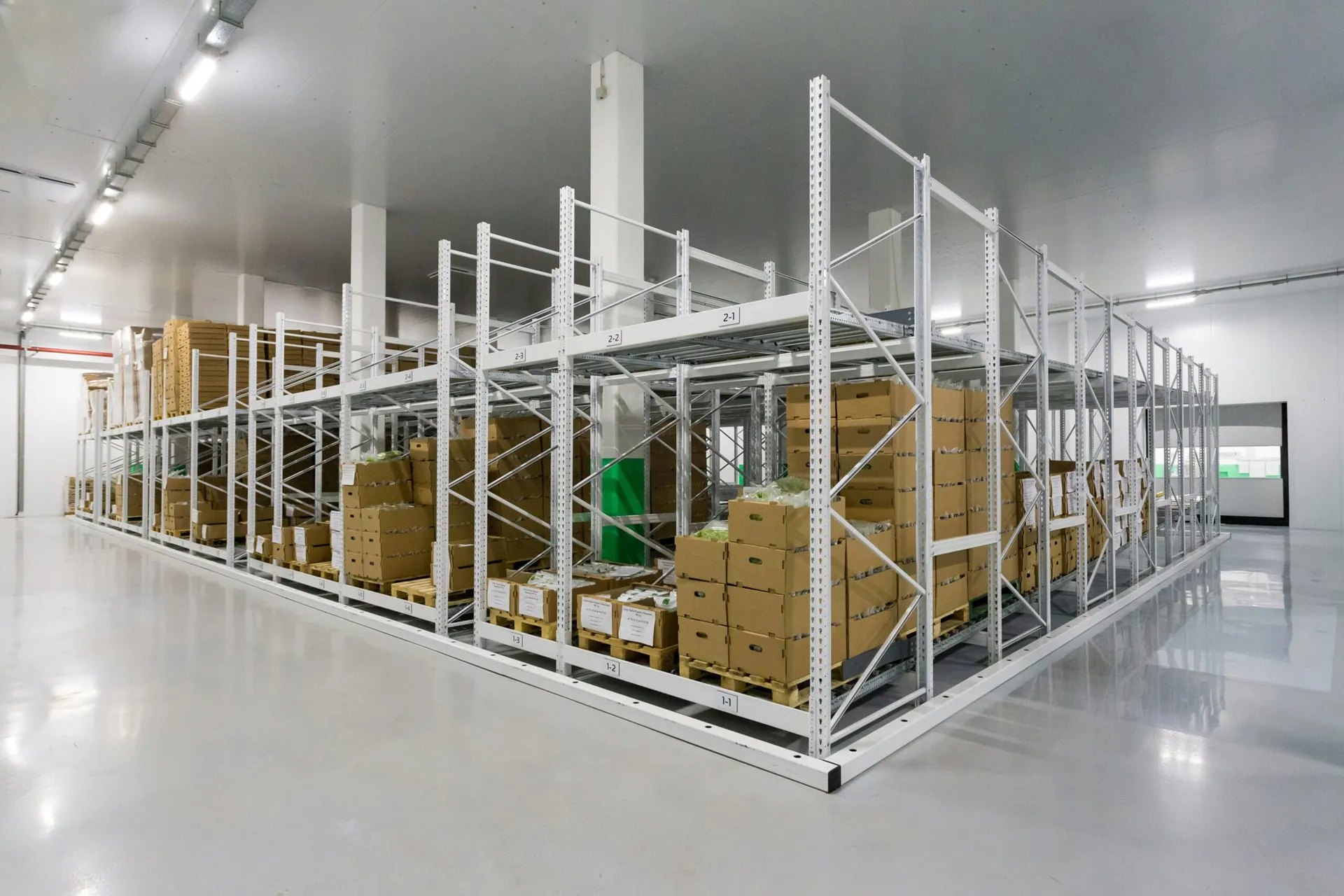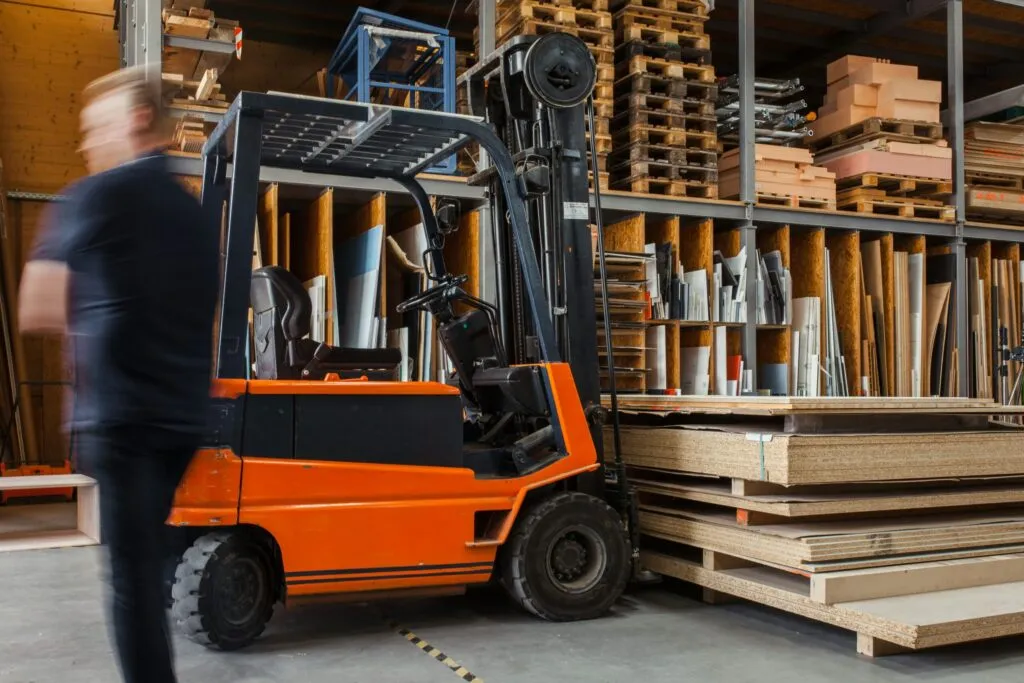The Difference Between Logistics And Supply Chain Management

In today’s ever-changing business world, smooth and effective product transportation is essential to any company’s success. The two essential elements crucial to this process are supply chain management and logistics. Despite their frequent overlap, the phrases refer to different parts of the complex network that links producers, suppliers, distributors, and customers.
Come along on this fascinating adventure as we explore supply chain management and logistics, revealing the minute details that set them apart and examining how their mutually beneficial connection helps firms grow. By elucidating their definitions, purposes, and crucial role in streamlining the flow of goods from production to consumption, we aim to demystify these ideas in this blog.
Logistics vs. Supply Chain Management
Logistics and supply chain management are interconnected concepts that play pivotal roles in the movement of goods from production to consumption, but they differ in scope and focus:
Logistics:
- Scope. Primarily focuses on the physical movement and management of goods.
- Functions. Encompasses activities such as transportation, warehousing, inventory management, and distribution.
- Objective. Aims to ensure efficient and cost-effective execution of day-to-day operations in the supply chain.
- Timeline. Tactical and immediate in its approach, dealing with real-time logistics operations.
Supply Chain Management:
- Scope. Takes a holistic approach involving the strategic coordination of all aspects of the supply chain.
- Functions. Extends beyond logistics to include procurement, production, distribution, and stakeholder collaboration.
- Objective. Aims to optimize the entire lifecycle of a product, fostering collaboration for long-term efficiency and strategic goals.
- Timeline. Strategic and long-term, focusing on optimizing processes throughout the entire supply chain.
What Is the Role of Logistics in Supply Chain Management?
The logistics duty in supply chain management is to ensure smooth and efficient transportation of goods from the place of origin to the final customer. Distribution, inventory management, transportation, and warehousing are just a few of the many tasks under the logistics umbrella. Logistics aims to maximize product flow, reduce expenses, and improve overall supply chain performance by carefully arranging these procedures. It acts as the operational motor, guaranteeing precise and timely delivery of goods, greatly enhancing customer happiness and the supply chain’s overall success.
Inbound Logistics
Inbound logistics involves managing and coordinating the transportation, storage, and handling of raw materials and components as they move from suppliers to the production facility. This logistics phase focuses on optimizing procurement processes and ensuring timely and cost-effective delivery of inputs to support efficient manufacturing operations.
Outbound Logistics
The operations involved in getting completed items from the production plant to the final customer are referred to as outbound logistics. It covers the organizing, carrying out, and managing of the actual movement of goods, including activities like order fulfillment, delivery, and transportation. The objective is to maximize efficiency and minimize expenses while meeting consumer requests by streamlining the supply chain.
Reverse Logistics
Reverse logistics handles the flow of items back into the supply chain, recycling, and product returns. This procedure includes managing excess or obsolete inventory, recycling or disposing of resources, and handling returned goods. Reverse logistics aims to recover value from returned goods, reduce waste, and improve sustainability. This helps the supply chain be more environmentally conscious and use resources more effectively.

Types of Logistics Businesses
Logistics businesses encompass diverse services, each playing a specialized role in the supply chain. Freight and transportation logistics companies focus on the movement of goods, utilizing various modes of transportation such as shipping, air freight, and trucking. Warehouse and distribution logistics businesses manage the storage, organization, and timely dispatch of products. Third-party logistics (3PL) providers offer comprehensive logistics services, handling various aspects like transportation, warehousing, and order fulfillment on behalf of other companies. E-commerce logistics companies specialize in managing the unique challenges of online retail, from order processing to last-mile delivery.
Overall, the types of logistics businesses are interconnected, working collaboratively to ensure the seamless flow of goods from manufacturers to end consumers in an increasingly complex and interconnected global marketplace. Let’s take a closer look at the most common types of logistics businesses.
Courier Shipping
A service specializing in quickly and easily delivering small packages and products from one place to another is known as courier shipping. Couriers are renowned for their dependability, quickness, and frequent door-to-door delivery capabilities. They are essential to the last-mile delivery process because they guarantee product prompt and safe delivery to the final customer.
In-House Logistics
A company that manages its own internal logistics operations is said to be practicing in-house logistics. This covers operations employing the company’s own assets and staff, such as distribution, warehousing, and transportation. Although internal logistics offers more control over supply chain procedures, it comes with a high cost in terms of infrastructure, staff, and technology.
Logistics Service Providers
Companies that provide other firms with full logistical services are known as logistics service providers or LSPs. Transportation, warehousing, order fulfillment, and distribution are a few examples of these services. Businesses can benefit from the experience and efficiency of specialized logistics providers while focusing on their core competencies by outsourcing specific parts of their logistics operations to LSPs.
Reverse Logistics
Managing product returns, recycling, and the flow of items back into the supply chain are all part of reverse logistics. Managing the disposal of excess or outdated inventory, handling returned goods, and renovating or recycling items are all included in this process. Reverse logistics seeks to reduce waste in the supply chain and maximize the value recovered from returned goods.
Third-Party Logistics
Third-party logistics (3PL) providers are outside firms that supply organizations with various logistics services. Order fulfillment, inventory management, warehousing, and transportation are a few examples of these services. Businesses can outsource particular logistics tasks to 3PL providers, who offer flexibility, affordability, and access to specialist knowledge.
Warehouse Providers
Managing and storing commodities inside warehouse facilities is the area of expertise for warehouse providers. These businesses provide services like distribution, order picking and packing, and inventory management. Warehouse providers are essential to maximize storage capacity, guarantee effective order fulfillment, and promote the smooth flow of goods through the supply chain.
In Conclusion
In summary, the complex network of logistics serves as the foundation for any successful supply chain, impacting the effectiveness and efficiency of the flow of goods from the point of production to the customer’s hands. Selecting a reliable logistics services company can be crucial when traversing this challenging terrain.
Carolina Logistics Inc. distinguishes itself as a trustworthy partner with a wide array of logistics solutions designed to satisfy various company requirements. Strategic warehousing, effective order fulfillment, and smooth shipping are all made possible by Carolina Logistics Inc.’s team of committed specialists, state-of-the-art technology, and commitment to quality. Consider putting your logistics needs in the hands of Carolina Logistics Inc., where innovation and dependability meet, and your success is our top focus while you work toward supply chain efficiency. Allow us to act as the link that takes your company to new heights. For unmatched logistics services, you can rely on, contact us right now.
